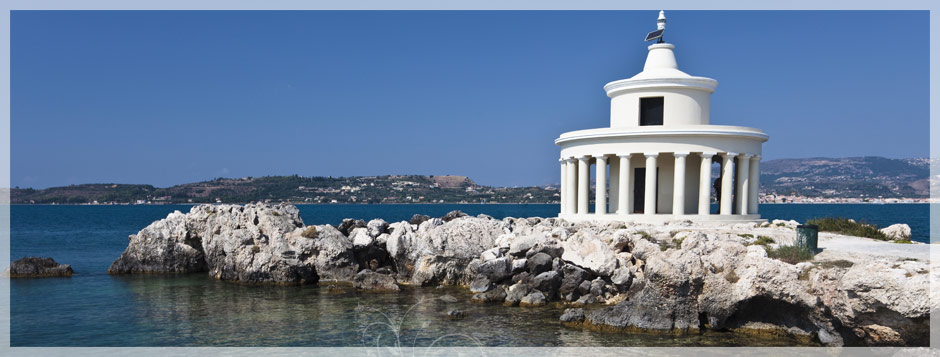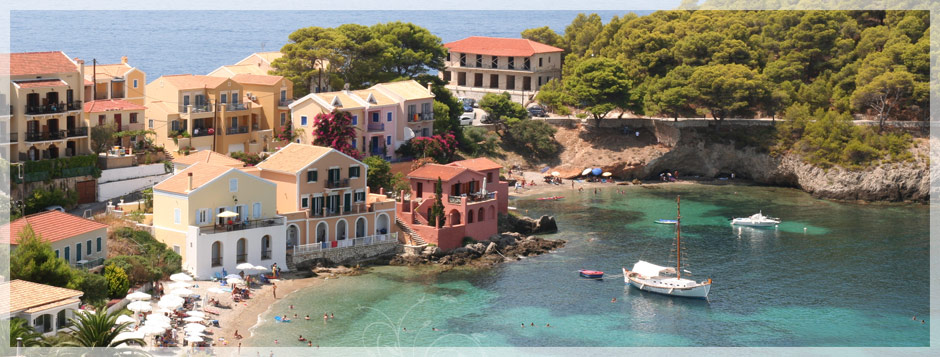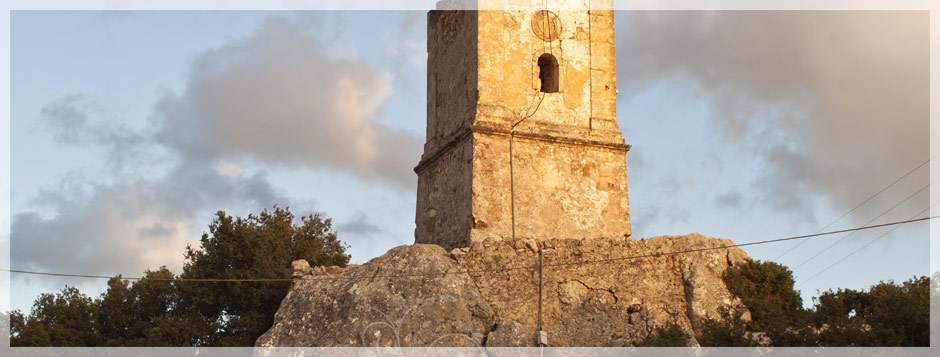«According to mythology, the island of Kefalonia was named after the mythical persona of Kefalos...»
History of Kefalonia
According to mythology, the island of Kefalonia was named after the mythical persona of Kefalos who was a mixture of two different mythical people. He was the son of Dion and Diomeda and Mercury, or the son of Pandion and Kreoussa, or Ersi. The goddess Jo loved king Kefalos and, in order to make him hers, she made him doubt the loyalty and devotion of his wife, Prokris. Jo encouraged him to appear before his wife wearing a disguise, and to seduce her with gifts. Prokris gave in to Kefalos and when she realized who he really was, she left, crying desperately.
After Prokris wandered around Crete, she returned to Athens where the goddess Diana agreed to help her win back her husband. Unfortunately, while hunting, Kefalos saw the movement of Prokris behind the trees and, mistaking her for prey, he aimed at her and killed her. Desperate from his misfortune, Kefalos left Athens. He met Amphetryon and helped him defeat the Televoes and the Tafious. In return, Amphetryon offered Kefalos this island, which he called “Kefalonia”. According to another legend, the island was named after Kefalines of Kefalanes, a nation in western Greece. Many students claim that Kefalines were the Ulysse’s people thus his kingdom was on the island of Kefalonia. Those who agree with this option, spell the island’s name with two “ls”.
For more information on the history of Kefalonia click here.




